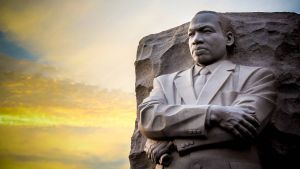October is a month of observance for many different cultures and initiatives, but one that is not as well known is Filipino American History Month.
Filipino American History Month has been celebrated by the Filipino National Historical Society for 30 years and was first commemorated in the White House in 2015 under the Obama-Biden Administration. Today, the Biden-Harris Administration has continued that tradition and celebrated the month during a webinar on October 20, which was presented by the White House Initiative on Asian Americans Native Hawaiians and Pacific Islanders (WHIAANHPI).
Filipino American History
The rich history of Filipino Americans is one that dates back to 1587 when the first people from the Philippines migrated to what is now Morro Bay, California.
Since their first arrival at Morro Bay, “generations of Filipino Americans have contributed to the vibrancy and success of our nation,” Krystal Ka’ai, Executive Director of WHIAANHPI, said during the webinar.
Ka’ai mentioned the Filipino farmworkers who walked out on vineyards in the 1960s. It started on Sept. 8, 1965, in Delano, California, with 2,000 Filipino-American workers refusing to go pick grapes and lasted five years. It is known as the Delano Grape Strike and Filipino-American Larry Itliong is known as the father of the strike as he declared it.
Filipino Americans also served in World War II. And during the COVID-19 pandemic, many served as healthcare workers, doctors and nurses.
Today, a number of Filipino Americans work under the Biden Administration. On the Filipino American History Month webinar, some of those members across different government sectors spoke about their jobs, their experience as Filipino Americans and the history and future of their people.
Filipino Americans’ Role Within the Larger AANHPI Community
From 2000 to 2019, the number of Filipino Americans in the U.S. has grown from 2.4 million people to 4.2 million people, making them the third-largest Asian American group in the U.S.
When asked by moderator Francey Lim Youngberg, Assistant Director for the Office of Partnership and Engagement, U.S. Department of Homeland Security, Immigration and Customs Enforcement, what role this growing population should play in the larger AANHPI community, Camille Calimlim Touton, Commissioner, U.S. Bureau of Reclamation, said Filipino Americans like her should understand that they have shared values with the larger AANHPI community. She added that the AANHPI community needs to “tell the stories about what made us who we are and fully recognize we’re unique with shared values.”
Nani Coloretti, Deputy Director, Office Management and Budget, said Filipino Americans need to “lead with values first” in this “very diverse country.”
“Filipino Americans are very good connectors and I think Filipinos can lead through service and creativity and through a focus on excellence because that’s what I see when I meet Filipino Americans when I hear stories about who came before me and who is here now, it makes me really proud to be Filipino,” she added.
Gina Ortiz Jones, Under Secretary of the United States Air Force, U.S. Department of Defense, added that Filipino Americans need to highlight the ways in which they serve while also talking about what they’ve sacrificed.
“When we think about what we just lived through over the two and a half years with COVID and we think about the ways in which Filipino American nurses have disproportionately contributed to life-saving healthcare throughout this country and, unfortunately, the disproportionate number of Filipino American nurses that were lost as part of that, I think it’s important that we tell our stories so that when you have unfortunate instances like the rash of anti-AAPI hate, hopefully through the telling of our stories, people will see how critical our contributions have been to this country,” Jones said.
Advice for Filipino Americans Looking to Join the Public Sector
Since all panelists are Filipino Americans serving in the public sector, Youngberg asked for advice for young Filipino Americans who want to join the government or military and serve the public.
Coloretti said there are many “doorways in to serve the public” and that young Filipino Americans should “cultivate curiosity and lean on your strengths.”
“Keep your network strong and cultivate your sense of curiosity,” she said. “You can come into this work by working on campaigns. You could come in as I did, through the Presidential Management Fellows program which is for newly graduated, newly degreed people.
“I also wouldn’t forget the power in serving in local and state government because you can also come to the federal government through that doorway, too,” she added.


















